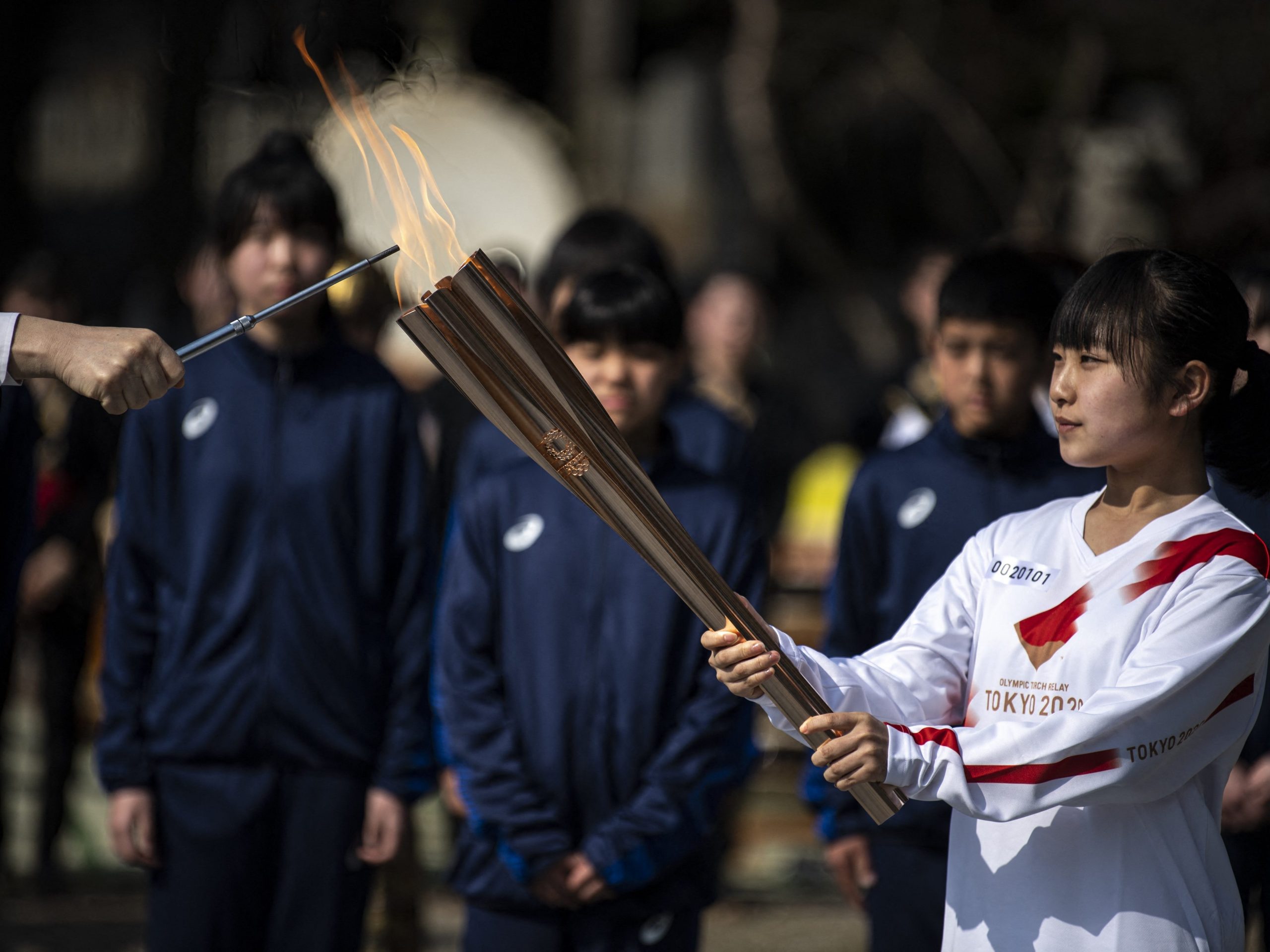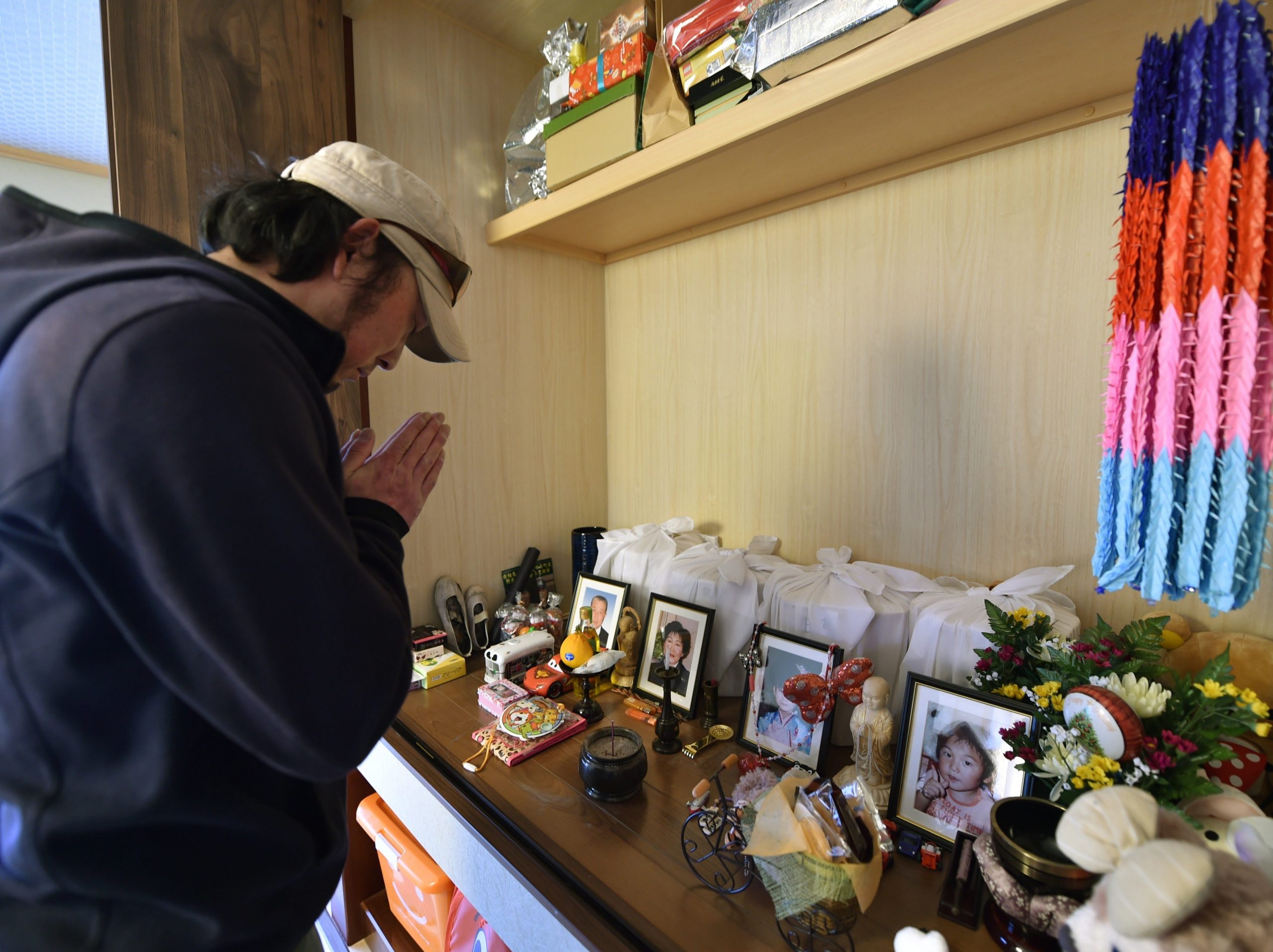
Charly Triballeau/AFP
- Tsunami survivor Takayuki Ueno, 46, is one of 10,000 torchbearers for the Tokyo Games.
- Ueno lost his parents and children in the 2011 Tohoku earthquake and tsunami.
- Runners hope that the torch relay will show the world that Fukushima is moving forward.
- Visit Insider's homepage for more stories.
Being named as a torchbearer for the Tokyo Games is a great honor, but for Takayuki Ueno, the moment he runs with the Olympic flame in hand will be a personal triumph.
Ueno, 46, is one of Japan's 10,000 torchbearers, and a survivor of the 2011 Tohoku earthquake and tsunami.
Over 121 days, the flame will make its way from Fukushima, weaving its way through former nuclear exclusion zones and crisscrossing the country's 47 prefectures before arriving at the Tokyo National Stadium for the opening ceremony on July 23.
"I am going to run with a smile, so that my parents and children that I lost won't worry about me," Ueno told CNN.
Ueno, who lives in Minami-soma city in Japan's northeastern Fukushima prefecture, was one of his family's only survivors. He lost his father, mother, 8-year-old daughter, and 3-year-old son in the 2011 disaster.

Kazuhiro Nogi/AFP
Their belongings - including shoes and items of clothing - now sit on a shrine in Ueno's home, next to their remains. Ueno told NPR he cannot bring himself to bury them in a grave.
Another tsunami survivor and torchbearer, Yumiko Nishimoto, told AFP that she would carry the flame with pride.
"When we came up with the idea of inviting the torch relay here, there were still a lot of places along national roads where decontamination work had not been done. Many said there was no way we could hold the torch relay here. But we never gave up," said Nishimoto.
Kyodo News reported that Nishimoto, who runs a nonprofit organization, has spearheaded a drive to plant 20,000 cherry (or 'sakura') trees along a 100-mile stretch of coastal road in Fukushima, which cuts through towns and villages that remain abandoned and uninhabitable.
"It will only be 200 meters, but for me, it will be a very long 200 meters," Nishimoto said.
Originally billed by former Japanese prime minister Shinzo Abe as the "recovery games," the Tokyo Olympics was meant to highlight the massive effort made by Japan to rebuild its coast following the 2011 earthquake, tsunami, and nuclear meltdown.
The games will proceed this summer without a foreign audience, despite COVID fears and public skepticism.
Fans coming out to see the torch relay have been told to keep a safe distance from each other as the torch passes, and refrain from loud cheering, as organizers have cautioned that crowding might force the relay to be stopped or re-routed during its four-month journey.